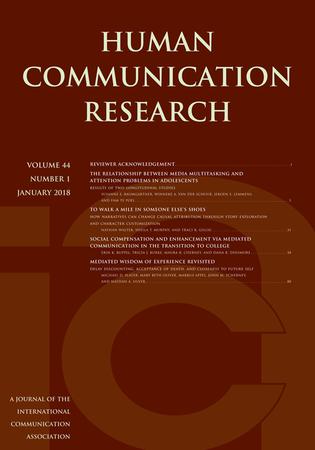La inclusión relacional:研究全球南方在多样性、公平性和包容性工作中的新自由主义紧张关系、关系机会和固定理解
IF 4.4
1区 文学
Q1 COMMUNICATION
引用次数: 1
摘要
这项研究探讨了哥伦比亚一所大学的教职员工和学生在其机构实践中实现多样性、包容性和公平(DEI)计划的努力。本研究以组织的交际构成(CCO)为告知范式,提出将制度DEI理解为关系本体的相互联系的交际实践。此外,本研究致力于识别将知识与霸权北大西洋和欧洲中心范式脱钩的新轮廓,并质疑“嵌入资本主义权力网络”的认识论(Dutta&Pal,2020),这项定性研究揭示了两个充满张力的主题,描述了(a)DEI含义的(无序)性质和(b)哥伦比亚高等教育机构DEI努力的社会性/物质性纠缠。综合起来,我们的研究结果强调了DEI中社会物质话语的不可分割的相互作用,以及质疑和质疑北大西洋和欧洲中心背景下跨国话语的迫切需要。本文章由计算机程序翻译,如有差异,请以英文原文为准。
La inclusión relacional: examining neoliberal tensions, relational opportunities, and fixed understandings in diversity, equity, and inclusion work in the Global South
This study explored efforts of staff, faculty, and students at a Colombian university to materialize diversity, inclusion, and equity (DEI) programs in its institutional practices. Using Communicative Constitution of Organization (CCO) as an informing paradigm, this study proposed to understand institutional DEI as interconnected communicative practices of relational ontology. In addition, this study constituted an effort to recognize novel contours that delink knowledge from hegemonic North Atlantic and Eurocentric paradigms and interrogate epistemologies “embedded in capitalist networks of power” (Dutta & Pal, 2020).Through ethnographic work and in-depth interviews with 23 organizational members, this qualitative study unearthed two tension-laden themes that described (a) the (dis)ordering nature of DEI meanings and (b) the sociality/materiality entanglement of DEI efforts at a Colombia institution of higher education. Combined, our results highlight an inseparable interplay of sociomaterial discourses in DEI and the imperative need to question and contest transnational discourses from North Atlantic and Eurocentric contexts.
求助全文
通过发布文献求助,成功后即可免费获取论文全文。
去求助
来源期刊

Human Communication Research
COMMUNICATION-
CiteScore
8.20
自引率
2.00%
发文量
28
期刊介绍:
Human Communication Research is one of the official journals of the prestigious International Communication Association and concentrates on presenting the best empirical work in the area of human communication. It is a top-ranked communication studies journal and one of the top ten journals in the field of human communication. Major topic areas for the journal include language and social interaction, nonverbal communication, interpersonal communication, organizational communication and new technologies, mass communication, health communication, intercultural communication, and developmental issues in communication.
 求助内容:
求助内容: 应助结果提醒方式:
应助结果提醒方式:


